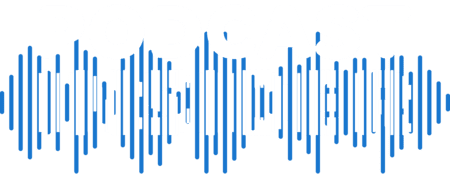The power of a great episode title.
 You’ve recorded your best episode ever. You produced an amazing interview with timely and funny commentary. Your audience wants this information. But you named it My Podcast, Episode 47. Will that episode title get your audience hit the play button?
You’ve recorded your best episode ever. You produced an amazing interview with timely and funny commentary. Your audience wants this information. But you named it My Podcast, Episode 47. Will that episode title get your audience hit the play button?
Our episode titles and our show notes introduce us to new listeners. If our titles don’t attract them, they will move on to the next recommendation.
What keys can open the door to new listeners, build your podcast SEO and motivate people to respect you as a thought leader?
What do you need to consider to get more plays?
- Give your episodes names that create curiosity: You may have the single most important guest on your topic on your episode. The content may change lives. But if the audience doesn’t know the guest, then they probably don’t know what this guest has to offer. How do you entice them to listen?
Create curiosity with your episode titles. Make your audience wonder — and don’t give them the answer. Sometimes all you need to do is ask a question:
- Do You Know How to Entice Your Audience to Hit Play?
- Is Your Potential Audience Finding Your Podcast?
You can also hint at what’s inside:
- Three Simple Tips to Build Your Podcasting Audience
- Encourage Plays with Your Episode Titles
You can learn how to write enticing titles by going over* to Buzzfeed.com. Their titles compel us to click. They have made a science of writing clickbait titles.
Am I telling you to write clickbait titles?
No, I want to challenge you to write compelling episode titles. When you write captivating titles and you’re honest — not just reeling them in to increase your ad sales — you get more listeners. Promise only something that you can deliver. But you can write that episode title in a way that makes someone decide that they can’t wait to hear your podcast.
If you need help, find a headline generator online. Free headline generators will suggest dozens of titles for you to choose from. Those titles might even inspire new podcast ideas.
2. Use the right keywords in your episode title: Search Engine Optimization (SEO) is the key to making Google and the other search engines find your podcast. Now that Google has a podcast player, it’s easier than ever to find a podcast, or an episode on a specific topic.
What’s your podcast episode about? What will someone who needs the information put into Google?
If you’re doing a podcast with a specific guest, you should include their name and the topic in the episode title of the URL . . .
- MyPodcastShow.com/Podcast-Titles-Todd-Cochrane
- MyPodcastShow.com/Name-Your-Podcast-Todd-Cochrane
. . . but make sure the title of your episode focuses on the topic.
- Episode Titles: Todd Cochrane Talks About Episode Names
- Name Your Episodes with Todd Cochrane
The words that you start your titles with matter to search engines. If the important keyword comes first, then the search engines will rank your episode higher.
That’s why naming your episode Episode 47 doesn’t help anyone find your podcast in a search engine. You’ll get found, along with hundreds of other Episode 47s.
Several podcasts sound like they have used a podcast episode number in the name. A podcaster might tell their listeners to go to Episode 47, but in that case, they may have used a redirecting plugin such as Pretty Links.
We need to think about what people are going to see in their podcast players. Regardless of the player, the episode title is the first thing a potential listener is going to see.
3. Find the Right Verb: Hint, “Is” Isn’t: Should you use descriptive words in your episode title? Don’t those attract listeners? Will your listeners be more attracted to . . .
Your Podcast Title is Simply the Best
or
Find the Podcast Title That Brings New Listeners
. . . and hit the play button?
Those titles don’t differ from each other, but find tells your audience what they need to do: find the right word. That clarifies to the audience what they will hear in your podcast. Is doesn’t sell your episode; it doesn’t tell the listener what they will take away from your podcast.
When you tell the audience what they will get from your episode or the benefits they receive from listening, you create value in their mind. They know what knowledge they gain from you and how to apply it to their lives. That makes your advice valuable to them. You become a leader in your field and gain some authority. If you want to build your position, pick the right verbs.
Features don’t sell. Benefits do. Use those benefits to pitch to your audience about what they will glean from your podcast that will help them. Keep the focus of your episode title to sell your podcast. New listeners will come.
____________
 Kim Krajci, host of Toastmasters 101 podcast, has been podcasting for 7 years and writing since the creation of the stylus and clay tablets. She also teaches speech and debate and works as a social media manager.
Kim Krajci, host of Toastmasters 101 podcast, has been podcasting for 7 years and writing since the creation of the stylus and clay tablets. She also teaches speech and debate and works as a social media manager.





